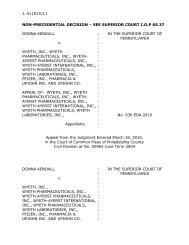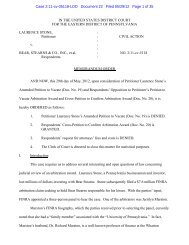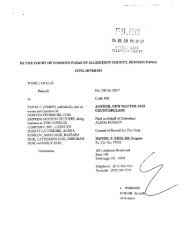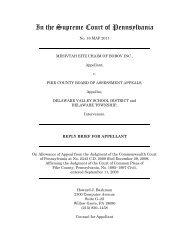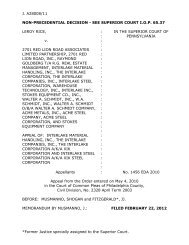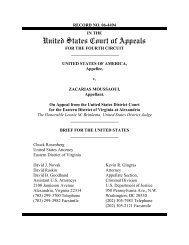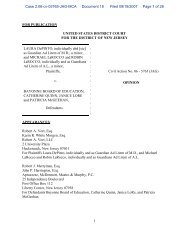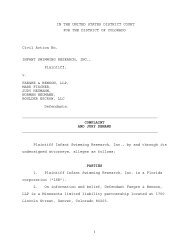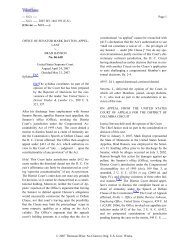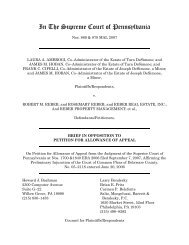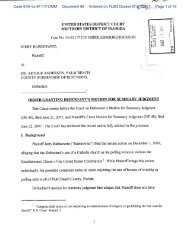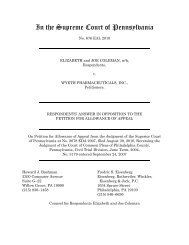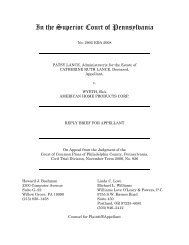petition for rehearing en banc - How Appealing
petition for rehearing en banc - How Appealing
petition for rehearing en banc - How Appealing
Create successful ePaper yourself
Turn your PDF publications into a flip-book with our unique Google optimized e-Paper software.
Vonn, 535 U.S. at 68. The Supreme Court gave the governm<strong>en</strong>t that opportunity, but the<br />
panel did not remotely hold the governm<strong>en</strong>t to its burd<strong>en</strong>.<br />
A. The “Honest Services” Instruction Prejudiced Def<strong>en</strong>dants on All Fraud<br />
Counts.<br />
1. The panel opinion did not describe or discuss the fraud and unanimity instructions in<br />
this case, ev<strong>en</strong> though both are ess<strong>en</strong>tial predicates to any proper analysis under Chapman.<br />
The required analysis must take into account the “customary presumption that jurors follow<br />
instructions and, specifically, that they consider relevant evid<strong>en</strong>ce on a point in issue wh<strong>en</strong><br />
they are told that they may do so.” Yates, 500 U.S. at 404. This is particularly significant in<br />
complex white-collar cases like this one, where the jury was giv<strong>en</strong> a copy of the instructions<br />
to guide its deliberations. Tr. 15158-59; R. 771.<br />
On each count of the Superseding In<strong>for</strong>mation (the “In<strong>for</strong>mation”) that charged mail or<br />
wire fraud, the jury was instructed on two theories and told that the theories were “differ<strong>en</strong>t.”<br />
Tr. 15169. The first theory was theft—i.e., money/property fraud. The second—”honest ser-<br />
vices” fraud—was defined <strong>en</strong>tirely under Delaware corporate law. The jury was charged that<br />
def<strong>en</strong>dants’ state-law fiduciary duties required them to “act in the corporation’s best inter-<br />
ests” and to “refrain from taking actions that either conflict with the corporation’s interests<br />
or that harm the corporation.” Id. (emphases added). A deprivation of “honest services” was<br />
established if def<strong>en</strong>dants “knowingly and int<strong>en</strong>tionally breached [that] duty of loyalty.” Id.<br />
No specific int<strong>en</strong>t to defraud was required; the only “deception” needed was the int<strong>en</strong>t “to<br />
deprive the corporation and its shareholders of their right to the honest services of their cor-<br />
porate officers.” Tr. 15172. Thus, under the instructions, def<strong>en</strong>dants “int<strong>en</strong>ded to defraud”<br />
if they simply “knew” they had failed to make a required disclosure. The In<strong>for</strong>mation, which<br />
the jurors also had with them during deliberations (R. 766), expressly described what the<br />
missing disclosure was as to each fraud count, including Count 7: though the paym<strong>en</strong>ts were<br />
“related party transactions” def<strong>en</strong>dants “failed to disclose these related party transactions to<br />
6



